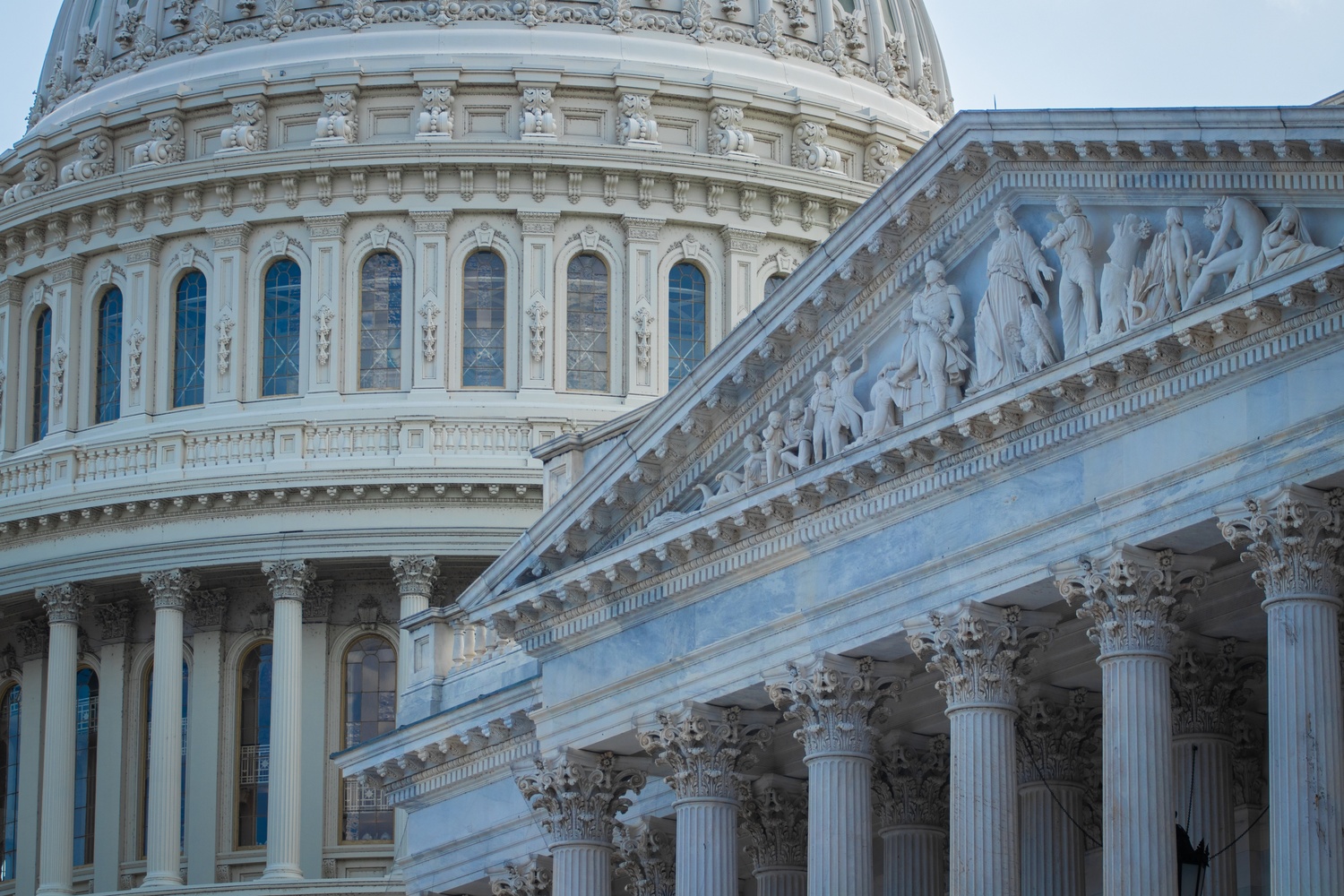
News
News Flash: Memory Shop and Anime Zakka to Open in Harvard Square

News
Harvard Researchers Develop AI-Driven Framework To Study Social Interactions, A Step Forward for Autism Research

News
Harvard Innovation Labs Announces 25 President’s Innovation Challenge Finalists

News
Graduate Student Council To Vote on Meeting Attendance Policy

News
Pop Hits and Politics: At Yardfest, Students Dance to Bedingfield and a Student Band Condemns Trump
Congressional Republicans Launch Investigation Into Harvard, Other Ivies for Possible Antitrust Violations

Updated April 11, 2025, at 1:39 a.m.
House and Senate Republicans launched an antitrust probe on Tuesday accusing Harvard and other Ivy League universities of colluding to hike tuition prices — lawmakers’ latest move to widen government scrutiny of elite institutions.
In a letter addressed to Harvard President Alan M. Garber ’76, members of the House and Senate Judiciary Committee — including House Judiciary Chair Rep. Jim D. Jordan (R-Ohio) and Senate Judiciary Chair Sen. Charles E. Grassley (R-Iowa) — suggested that Harvard was “engaging in anti-competitive pricing practices” and demanded that it turn over documents relating to financial aid practices and tuition pricing decisions since 2019.
“These institutions establish the industry standard for tuition pricing, creating an umbrella effect for all colleges and universities to justify higher tuition costs than they could otherwise charge in a competitive market,” they wrote.
Similar letters were also sent to the presidents of the seven other Ivy League universities. A Harvard Faculty of Arts and Sciences spokesperson wrote in a statement that “Harvard’s admissions practices comply with all applicable laws.”
The Tuesday letter comes amid a tug-of-war between Harvard and Republican critics in Washington. Last week, the Trump administration demanded Harvard eliminate diversity, equity, and inclusion programming and ban masks at protest — or prepare for a $9 billion cut in federal funding. Harvard has yet to respond to the demands.
But Tuesday’s letter signals that even if Harvard manages to quell Republicans’ efforts to penalize the University over its response to antisemitism, its challenges in Washington are far from over.
In the letter, the House and Senate Judiciary Committee alleged that Harvard and its peer institutions had coordinated financial aid policies and admissions practices in ways that violated federal antitrust laws. They pointed to the use of enrollment management software, algorithms to calculate financial aid, and third-party platforms — including the College Board and the Common Application — as potential tools for collusion.
“The structure and operation of the higher education market strongly suggests the market is not functioning properly and is subject to widespread violations of antitrust laws,” they wrote.
The letter also suggested that Ivy League schools engaged in illicit collaboration to set high upper limits on the rate of indirect cost reimbursements they receive from the National Institutes of Health — a rate the Trump administration has sought to lower across the board.
“Lack of clarity regarding how higher education institutions calculate and allocate the funding for indirect costs in federally funded research projects suggest a lack of competition for public funding among colleges and universities,” the committee chairs wrote.
Harvard received $488 million in grants from the National Institutes of Health in fiscal year 2024.
Lawmakers also argued that admissions strategies like binding early decision, legacy preferences, and selective financial aid packages enabled schools to “maximize profit” by offering personalized pricing, calling them forms of price discrimination.
Harvard offers a restrictive early action program — which allows prospective students to enter a sped-up admissions cycle if they do not apply to similar early action programs at other schools — but does not provide a binding early decision option to applicants.
In particular, the Judiciary Committee members contended that Harvard and other Ivy League schools had continued collusive practices even after an antitrust exemption that allowed elite universities to collaborate on financial aid calculations expired in 2022.
The Tuesday probe is one of several cases against prominent universities involving alleged violations of antitrust law. In October, Harvard and 39 other universities were accused of collusion for collaborating on a financial aid strategy that raised the cost of attendance. Harvard and several other universities moved to dismiss the suit in January.
Harvard has until April 22 to provide the congressional committees with the requested documents.
—Staff writer Dhruv T. Patel can be reached at dhruv.patel@thecrimson.com. Follow him on X @dhruvtkpatel.
—Staff writer Grace E. Yoon can be reached at grace.yoon@thecrimson.com. Follow her on X @graceunkyoon.
Want to keep up with breaking news? Subscribe to our email newsletter.
Most Read
- Harvard Will Fight Trump’s Demands
- Trump Administration Freezes More Than $2 Billion in Federal Funding to Harvard
- A Palestine Exception to Harvard’s Academic Mission
- Adams House Withdraws Support for Anti-Zionist Passover Event, Citing Policy on Unrecognized Student Groups
- Harvard Kennedy School Dean Denounces Visa Revocations in Email to Affiliates
